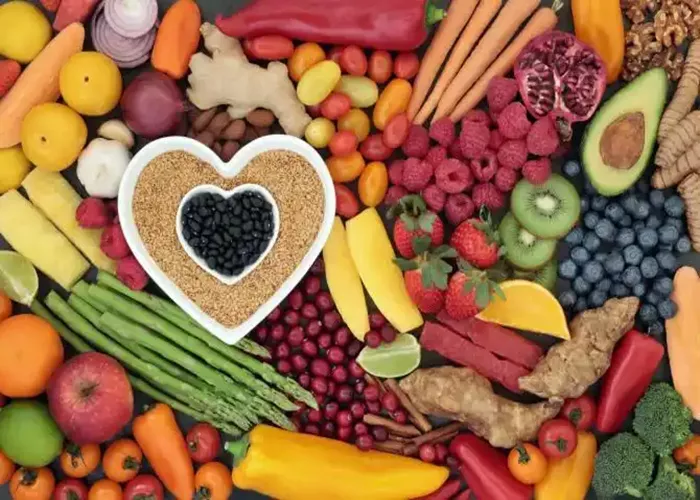When it comes to bodybuilding, nutrition plays a crucial role. What you eat after a workout is particularly important as it helps in muscle recovery, growth, and overall performance. Let’s delve into the details of what bodybuilders typically consume post-workout.
The Importance of Post-Workout Nutrition
After a workout, your muscles are in a state of repair and growth. This is known as the “anabolic window,” a period during which your body is more sensitive to nutrients and can efficiently use them to build muscle. Consuming the right nutrients at this time can significantly enhance your recovery and progress.
Macronutrient Breakdown
Post-workout nutrition primarily focuses on three macronutrients: protein, carbohydrates, and fats. Each serves a unique purpose in the recovery process.
Protein
Protein is the building block of muscles. After a workout, your muscles need protein to repair and grow. Consuming protein post-workout ensures that your muscles have the necessary amino acids to start the recovery process.
Popular sources of protein include:
- Chicken breast
- Turkey
- Fish (such as salmon and tuna)
- Lean beef
- Protein shakes (using whey protein or other protein supplements)
Aim for at least 20-30 grams of protein within 30 minutes after your workout. This amount is generally considered optimal for muscle recovery.
Carbohydrates
Carbohydrates are important for restoring glycogen levels in your muscles, which are depleted during workouts. Glycogen is the stored form of glucose in your muscles and is used as energy during exercise.
Good sources of carbohydrates include:
- Oats
- Sweet potatoes
- Rice (white or brown)
- Quinoa
- Fruit (such as bananas and berries)
Consuming fast-acting carbohydrates (such as dextrose or maltodextrin) immediately post-workout can quickly replenish glycogen stores. However, whole-food sources of carbohydrates like oats and sweet potatoes are also effective and provide additional nutrients.
Fats
While fats are not as critical post-workout as protein and carbohydrates, they still play an important role in overall nutrition. Healthy fats, such as those found in nuts, seeds, and avocados, provide essential fatty acids and help with the absorption of fat-soluble vitamins.
However, post-workout is not the best time to consume large amounts of fats, as they can slow down the digestion and absorption of other nutrients. Stick to moderate amounts of healthy fats in your post-workout meal.
Popular Post-Workout Meals
Now that we’ve covered the macronutrient breakdown, let’s look at some popular post-workout meals that bodybuilders enjoy.
Chicken Breast and Rice
A classic combination that provides a balanced mix of protein and carbohydrates. Grilled chicken breast is a lean source of protein, while rice (white or brown) offers quick-acting carbohydrates. Add some steamed vegetables for additional nutrients and fiber.
Protein Shake and Banana
A convenient and quick option, especially if you’re on a tight schedule. A protein shake made with whey protein, milk, or water provides a rapid influx of amino acids to your muscles. A banana adds natural carbohydrates and potassium, which helps with muscle recovery and electrolyte balance.
Oatmeal and Eggs
Oatmeal offers a slow-release source of carbohydrates that keeps you full and provides sustained energy. Eggs are a high-quality source of protein that contains all the essential amino acids. Add some fruit and nuts to your oatmeal for extra flavor and nutrients.
Salmon and Quinoa
A healthier option that provides a balance of protein, healthy fats, and carbohydrates. Salmon is rich in omega-3 fatty acids, which have anti-inflammatory properties and can help with muscle recovery. Quinoa is a gluten-free grain that provides complete protein and fiber.
Considerations for Individual Needs
While the above meals provide a good starting point, it’s important to tailor your post-workout nutrition to your individual needs. Factors such as body composition, workout intensity, and goals can affect your nutrient requirements.
Body Composition
If you’re trying to lose fat while building muscle, you may want to focus on lower-carbohydrate options and increase your protein intake. Conversely, if you’re bulking up and trying to gain weight, higher-carbohydrate meals may be more appropriate.
Workout Intensity
The duration and intensity of your workout will also affect your nutrient needs. Shorter, higher-intensity workouts may require more fast-acting carbohydrates to replenish glycogen stores quickly. Longer, lower-intensity workouts may benefit from a more balanced mix of protein, carbohydrates, and fats.
Goals
Your specific goals will also dictate your post-workout nutrition. If you’re aiming for maximum muscle growth, consuming a higher amount of protein and carbohydrates post-workout may be beneficial. If your goal is endurance or fat loss, a more moderate intake of these nutrients may suffice.
Additional Tips for Optimal Recovery
In addition to consuming the right nutrients post-workout, there are other steps you can take to optimize recovery.
Hydration
Proper hydration is crucial for recovery. Aim to drink at least 16-24 ounces of water immediately after your workout to replenish lost fluids. Sports drinks containing electrolytes can also be beneficial if you’ve sweated a lot.
Sleep
Sleep is when your body does most of its repair and recovery work. Make sure you’re getting enough quality sleep each night to support muscle growth and overall health.
Stretching and Foam Rolling
Stretching and foam rolling can help reduce muscle soreness and improve flexibility. Incorporate these activities into your post-workout routine for better recovery.
Conclusion
In summary, what you eat after a workout is critical for muscle recovery, growth, and overall performance. By focusing on a balanced mix of protein, carbohydrates, and fats, and tailoring your nutrition to your individual needs, you can optimize your recovery and achieve your fitness goals.
Remember, nutrition is just one aspect of bodybuilding. Combine it with a well-rounded exercise program, proper hydration, quality sleep, and recovery techniques to maximize your results.
Related topic:


